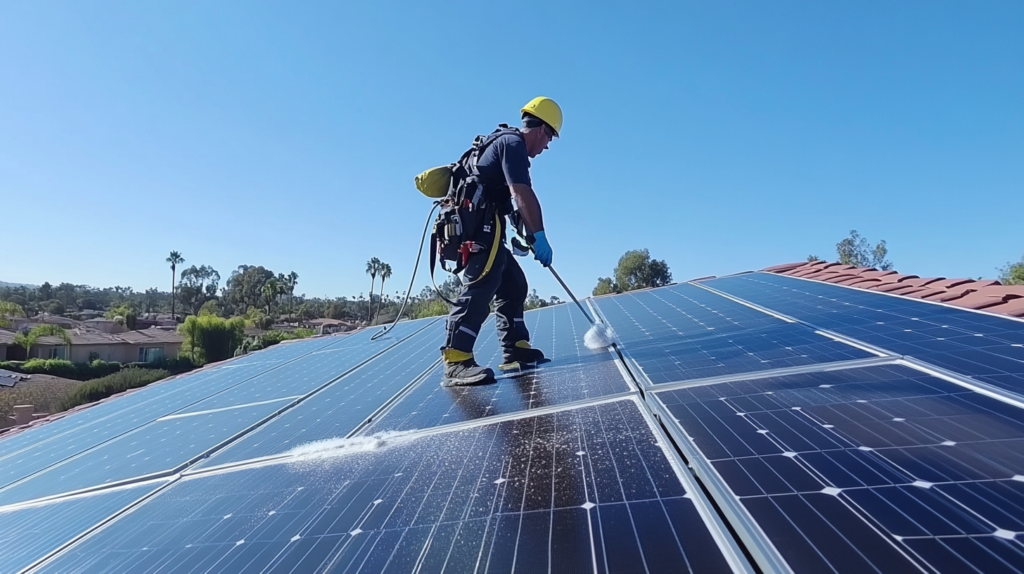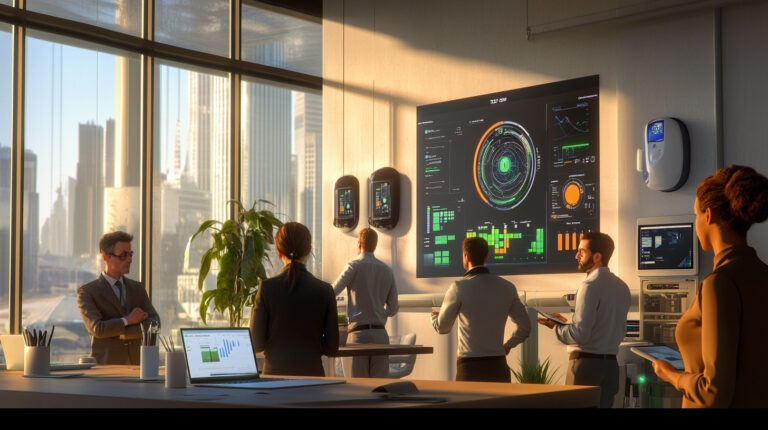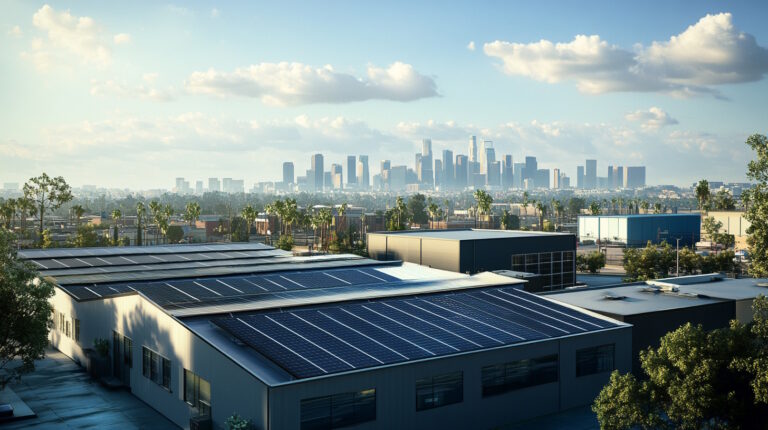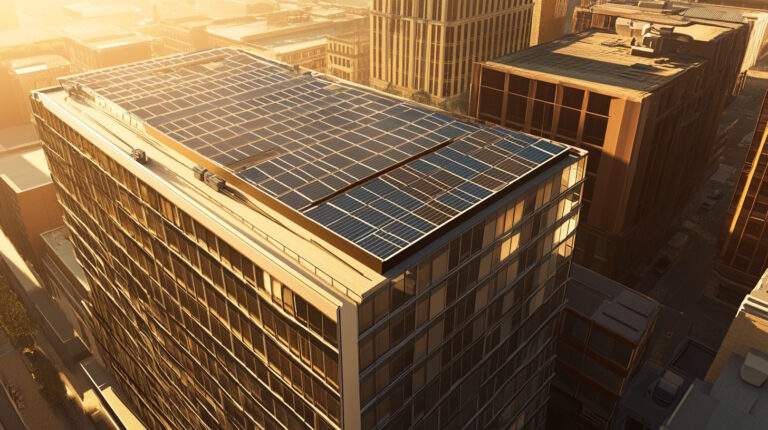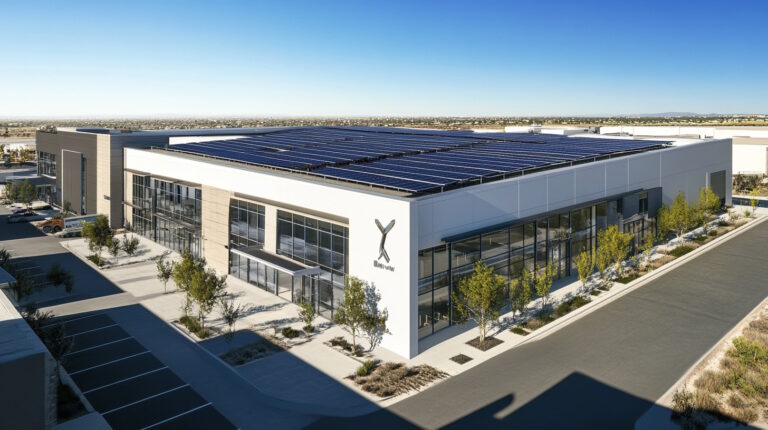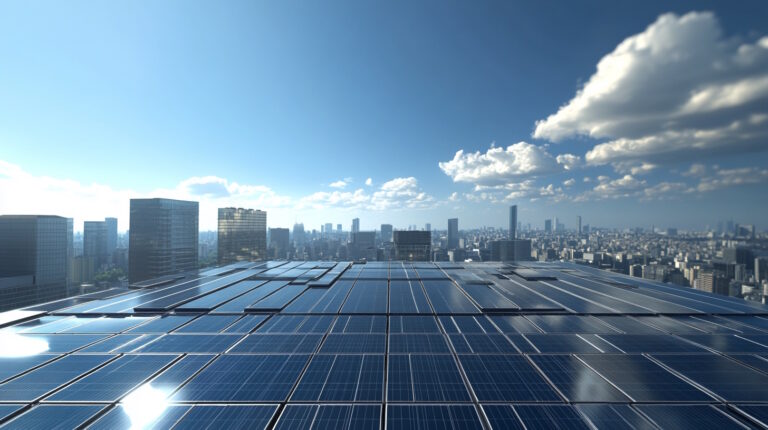Article Insights
– 💡 Understand the critical aspects of Solar Panel Maintenance and why it’s crucial for optimal performance.
– 💡 Learn about the Solar Panel Cleaning Importance and how it contributes to efficiency.
– 💡 Discover proven methods to Optimize Solar Efficiency through regular cleaning and maintenance.
– 💡 Gain insights into integrating cleaning with overall maintenance strategies for long-lasting solar power systems.
For those exploring renewable energy solutions, solar panels are standout options, offering sustainable energy derived from sunlight.
However, many homeowners and businesses might not realize the role of ongoing maintenance in ensuring these systems perform at their best.
Key to this maintenance routine is keeping the panels clean. Below, we delve into the necessity of solar panel cleaning and its significant impact on performance, ultimately helping you maximize solar efficiency.
Understanding Solar Panel Maintenance
Defining Solar Panel Maintenance: Ensuring your solar systems operate at peak capacity involves a range of essential practices. These include not only cleaning but also regular inspections, performance monitoring, and dealing with repairs swiftly. It’s about giving your solar investment the care it needs to run efficiently and last longer.
Additional Maintenance Tasks: Regular check-ups are necessary to detect any small issues before they become big problems. Continuously monitoring the system’s performance will alert you to any drops in efficiency, potentially indicating that maintenance is needed, whether that be cleaning or repairing.
Role of Regular Maintenance: By pairing cleaning with other upkeep protocols, you secure the longevity of your solar panels. This holistic approach helps safeguard your investment, ensuring it delivers sustainable energy for years to come.
Despite its importance, cleaning is often a neglected aspect of solar maintenance. Dust, debris, and other particulate matter can accumulate, creating a film that obstructs sunlight absorption.
Let’s explore why solar panel cleaning is so critical.
The Science Behind Solar Panel Efficiency
How Solar Panels Work: At the heart of solar panels are photovoltaic (PV) cells, which are key to converting sunlight into usable energy. These cells work by absorbing light; any obstruction can severely dampen their efficiency.
Factors Influencing Efficiency: Key environmental and physical factors determine how effectively your solar panels work. Cleanliness, temperature, and the angle of installation all play vital roles in their operational success.
Impact of Dirt and Debris: Any layer of grime can significantly obstruct light absorption. Research indicates that even a bit of dust or dirt can reduce solar efficiency by over 5%, translating to less energy generation and higher electricity bills for you.
Understanding these basics helps illuminate why keeping your panels clean is not merely a maintenance preference but a necessity for achieving peak efficiency.
Solar Panel Cleaning Importance: Debunking Myths
Myth vs. Reality: A common myth is that natural rain cleans solar panels adequately, but this isn’t entirely true. Rainfall may wash away some loose debris, but it won’t eliminate stubborn grime, bird droppings, or industrial soot that can accumulate over time.
Cleaning Frequency: The need for cleaning varies; factors like location, climate, and local wildlife activity influence how often you should clean your panels. For example, areas with high pollution might need more frequent cleans compared to areas with less pollution.
Professional vs. DIY Cleaning: While DIY methods can save money, hiring professional cleaning services ensures thoroughness and safety, particularly for hard-to-reach installations or panels affected by persistent dirt build-up.
The truth is, regular cleaning is vital to maintaining your solar panels’ efficiency and, by extension, the financial and environmental benefits they provide.
Factors Influencing the Need for Cleaning
Geographical Considerations: Regional differences play a huge role in defining cleaning schedules. Areas prone to dust storms or high pollen counts, for example, require more frequent cleaning due to the rapid accumulation of dust and other particulates.
Seasonal Impacts: Seasonal changes can also dictate cleaning frequency. In dry seasons, dust might be the primary issue, whereas in wetter periods, lichen or moss might pose a threat.
Local Wildlife: Birds and other wildlife can contribute significantly to dirt build-up on your panels. Bird droppings particularly need regular removal due to their acidic nature, which can damage panels.
These elements are important in tailoring a cleaning routine that meets the specific demands of your location and environmental conditions.
Best Practices for Solar Panel Cleaning
Recommended Cleaning Techniques: Employ safe methods when cleaning solar panels to avoid causing damage. Soft brushes, water, and occasionally a mild detergent are usually sufficient to remove dust and grime without causing scratches.
Considerations for Water Usage: Be mindful of your water usage, especially in areas with water restrictions. Techniques like using recycled or captured rainwater can be effective and eco-friendly.
Timing of Cleanings: Avoid cleaning your panels during high sun exposure to reduce the risk of sudden temperature changes that can crack the glass. Early mornings or late afternoons are ideal for such tasks.
Implementing these best practices ensures your solar panels are cleaned effectively while minimizing environmental impact and enhancing panel performance.
Harnessing Total Efficiency Through Regular Maintenance
Synergy of Cleaning and Other Maintenance Practices: Cleaning should be part of a broader suite of maintenance tasks that together maximize efficiency and performance. By combining cleaning with routine inspections and performance monitoring, you can detect issues early.
Routine Inspections and Performance Monitoring: Regular inspections help identify problems that might not be visible but are impacting efficiency nonetheless. Monitoring your system’s performance ensures any sharp drops are quickly addressed.
Long-term Benefits: Consistent cleaning and maintenance lead to longer system lifespans, which means reduced costs over time due to fewer repairs and replacements.
By committing to a regular maintenance schedule, particularly focusing on cleaning, you can nurture your solar energy systems for optimal long-term output.

